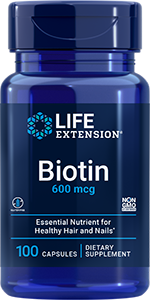- Science & Research
- Science News
- Newsletter
- 2012
- March 6

Newsletter
Newsletter
Taurine Protects Against Coronary Heart Disease In Women With High Cholesterol
Taurine protects against coronary heart disease in women with high cholesterol
Tuesday, March 6, 2012. An article published online in the European Journal of Nutrition revealed that taurine, an amino acid found in relatively high amounts in dark poultry meat and other foods, may be protective against heart disease in women with elevated cholesterol levels. Taurine is involved in blood pressure regulation, and possesses antioxidant and anti-inflammatory properties. Although studies have uncovered a heart benefit for the amino acid in animals, the current investigation is the first prospective study of taurine and coronary heart disease risk in humans. New York University (NYU) School of Medicine associate professor of epidemiology Yu Chen, PhD, MPH and her colleagues analyzed data from subjects in the NYU Women's Health Study, which enrolled over 14,000 women between the ages of 34 to 65 from 1985 to 1991. Dr Chen's team averaged taurine levels measured in two prediagnostic serum samples from 223 participants who developed coronary heart disease and 223 women who had no history of the disease over the study's twenty year follow up period. Women with a high intake of saturated fat tended to have a lower intake of taurine. Although no significant relationship between taurine and coronary heart disease was found for the entire study population, when women with high cholesterol of greater than 250 milligrams per deciliter were analyzed, a different picture emerged. Hypercholesterolemic women whose intake of taurine was among the top one-third of subjects had a 61 percent lower risk of heart disease compared to those in the lowest third. According to the authors, the data also suggest a protective effect for taurine against the risk of high blood pressure and diabetes. If the findings are replicated, supplemental taurine or increased taurine intake from food might be recommended for women with elevated cholesterol, who have an increased risk for cardiovascular disease. "Our findings were very interesting," commented Dr Chen. "Taurine, at least in its natural form, does seem to have a significant protective effect in women with high cholesterol." | ||||||||||||||||||||||||||||||||||||
 | ||||||||||||||||||||||||||||||||||||
| ||||||||||||||||||||||||||||||||||||
 | ||||||||||||||||||||||||||||||||||||
| ||||||||||||||||||||||||||||||||||||
| ||||||||||||||||||||||||||||||||||||
The latest news on aging, nutrition, and vitamins
Lab
Testing
How Life Extension lab testing works











